Your kidneys are two small but mighty organs that work tirelessly to keep your body clean and balanced. Every day, they filter about 200 quarts of blood, removing waste and extra fluid while maintaining the perfect balance of salts and minerals in your body. When your kidneys aren’t functioning well, toxins can build up, leading to fatigue, swelling, and serious health complications.
The good news? What you eat directly impacts your kidney health. By choosing the right foods, you can support these vital organs, reduce inflammation, and even help prevent kidney disease. Let’s explore twelve delicious, everyday superfoods that your kidneys will love.
Red Bell Peppers: The Colorful Kidney Protector
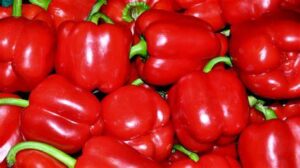
These vibrant vegetables are a kidney’s best friend. Unlike many other vegetables, red bell peppers are low in potassium, making them safe for people who need to watch their kidney function. But what really makes them special is their impressive nutrient profile. Packed with vitamin C, they help boost your immune system while fighting inflammation. They also contain vitamin A for tissue repair and lycopene, a powerful antioxidant that protects your cells from damage.
The sweet, crisp flavor of red bell peppers makes them incredibly versatile. Try them raw with hummus for a quick snack, roasted with olive oil as a side dish, or chopped into salads for a colorful crunch.
Cabbage: The Humble Detoxifier
This budget-friendly vegetable might not look glamorous, but it’s a powerhouse when it comes to kidney health. Cabbage contains special compounds called phytochemicals that help break down harmful substances in your body. It’s also packed with fiber, which keeps your digestive system running smoothly and prevents constipation – a common issue for people with kidney concerns.
What makes cabbage particularly kidney-friendly is its low potassium content. You can enjoy it raw in coleslaw for a refreshing crunch, lightly steamed as a side dish, or fermented into sauerkraut for gut-healthy probiotics.
Cauliflower: The Versatile Kidney Helper
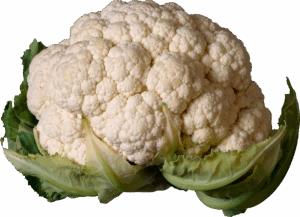
When you’re watching your kidney health, finding satisfying alternatives to high-potassium foods like potatoes can be challenging. That’s where cauliflower comes in. This mild-flavored vegetable can be transformed into everything from rice to mashed “potatoes” while being much gentler on your kidneys.
Cauliflower brings more to the table than just being a potato substitute. It’s rich in vitamin C to boost your immune system and contains folate for cell repair. The fiber in cauliflower helps with digestion, while its low sodium and potassium levels make it a safe choice for kidney health. Roast it with spices for a flavorful side dish, mash it with garlic for comfort food, or pulse it into rice for a low-carb alternative.
Garlic: The Flavorful Kidney Guardian
This aromatic bulb does more than make your food taste amazing – it’s a potent medicine for your kidneys. Garlic contains allicin, a compound with powerful anti-inflammatory properties that can help reduce kidney damage. It also helps lower cholesterol levels, which is important because high cholesterol can contribute to kidney disease.
The antibacterial properties in garlic help fight infections that might otherwise stress your kidneys. Unlike many flavor enhancers that are high in salt, garlic adds deep flavor without the sodium. Crush fresh garlic into salad dressings, sauté it with vegetables, or roast whole bulbs for a sweet, spreadable treat.
Onions: The Kidney’s Best Friend
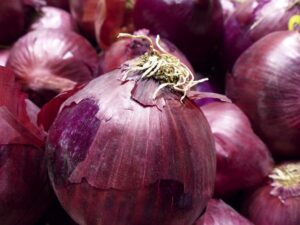
Onions are a kitchen staple that deserve special recognition for their kidney-supporting abilities. They’re naturally low in potassium, making them safe for people with kidney concerns. But their real value comes from quercetin, a powerful antioxidant that specifically helps protect kidney cells from damage.
Onions also contain chromium, a mineral that helps your body metabolize fats, proteins, and carbohydrates more efficiently. This means less waste for your kidneys to filter out. The sulfur compounds in onions help detoxify your body naturally. Caramelize them for a sweet addition to dishes, chop them raw into salads for crunch, or simmer them in soups for depth of flavor.
Apples: The Classic Kidney Cleanser
The old saying “an apple a day keeps the doctor away” holds particular truth for kidney health. Apples are nature’s perfect kidney cleansers, thanks to their high fiber content and antioxidant properties. The soluble fiber in apples helps lower cholesterol, reducing strain on your kidneys.
Apples contain compounds that help prevent inflammation and oxidative stress in kidney tissues. Their natural sweetness makes them a great alternative to sugary snacks that can contribute to diabetes – a leading cause of kidney disease. Enjoy them fresh for maximum nutrients, baked with cinnamon for a healthy dessert, or blended into smoothies for a fiber boost.
Cranberries: The UTI Preventer
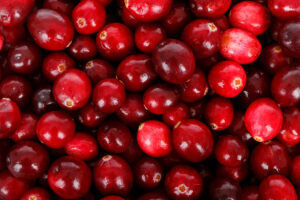
Cranberries have earned their reputation as urinary tract superheroes. They contain unique compounds that prevent bacteria from sticking to the walls of your urinary tract, reducing the risk of infections that can travel up to your kidneys.
Beyond fighting UTIs, cranberries are packed with antioxidants that reduce inflammation throughout your urinary system. They help create a slightly acidic environment in your urine that discourages bacterial growth. Choose unsweetened cranberry juice to avoid excess sugar, or add dried cranberries to your morning oatmeal for a tart flavor boost.
Blueberries: The Antioxidant Powerhouse
These small, blue gems are packed with anthocyanins – powerful antioxidants that give them their deep color and provide exceptional protection for your kidneys. Oxidative stress is a major contributor to kidney damage, and blueberries help neutralize these harmful compounds.
Blueberries are naturally low in sodium, phosphorus, and potassium, making them one of the most kidney-friendly fruits available. Their high fiber content supports healthy digestion and helps regulate blood sugar levels. Sprinkle them on yogurt for breakfast, blend them into smoothies, or enjoy them by the handful for a sweet, nutritious snack.
Fatty Fish: The Omega-3 Source
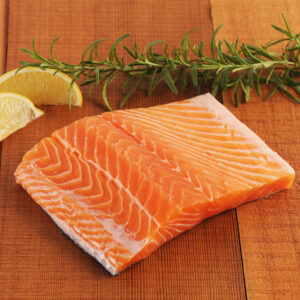
Salmon, tuna, and mackerel are excellent choices for kidney health because of their high omega-3 fatty acid content. These healthy fats reduce inflammation throughout your body, including in your kidneys. Omega-3s also help lower blood pressure, which is crucial because high blood pressure can damage kidney function over time.
Fatty fish provide high-quality protein that’s easier for your kidneys to process than protein from red meat. The American Heart Association recommends eating fish at least twice a week. Grill salmon with lemon for a simple, kidney-friendly dinner, or add canned tuna to salads for a protein boost.
Olive Oil: The Heart-Healthy Fat
Unlike butter or vegetable oils that can be hard on your kidneys, olive oil is a healthy fat that supports kidney function. It’s rich in anti-inflammatory compounds and antioxidants that protect your cells from damage. Olive oil is also free of phosphorus, a mineral that people with kidney disease often need to limit.
Extra virgin olive oil retains the most nutrients. Use it to dress salads, drizzle over cooked vegetables, or as a dip for whole grain bread. Just remember that while it’s healthy, it’s also calorie-dense, so use it in moderation.
Egg Whites: The Pure Protein
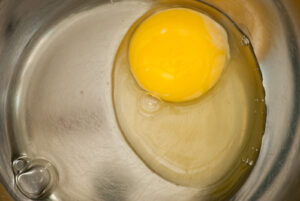
For people concerned about kidney health, getting enough high-quality protein without overloading on phosphorus can be tricky. Egg whites solve this problem perfectly. They provide all the essential amino acids your body needs without the high phosphorus content found in egg yolks and many other protein sources.
Egg whites are versatile and easy to prepare. Make a fluffy omelet with vegetables for breakfast, add hard-boiled egg whites to salads, or use them in baking as a protein boost.
Water: The Essential Kidney Helper
While not technically a food, no discussion of kidney health would be complete without mentioning water. Your kidneys depend on adequate hydration to filter waste effectively. When you’re dehydrated, your kidneys have to work harder, and waste products can become more concentrated in your urine, increasing the risk of kidney stones.
Most healthy adults should aim for about 8 glasses of water daily, but needs vary based on activity level, climate, and overall health. A good rule of thumb is to drink enough so that your urine is light yellow in color.
Creating a Kidney-Healthy Lifestyle
Incorporating these twelve superfoods into your diet is a great start, but true kidney health involves a holistic approach. Limit processed foods high in salt and phosphorus additives, maintain a healthy weight, and keep conditions like diabetes and high blood pressure under control.
Remember that if you already have kidney disease, your dietary needs may be different. Always consult with your doctor or a renal dietitian before making significant changes to your diet.
Your kidneys work hard for you every day. By nourishing them with these superfoods and maintaining healthy habits, you’re investing in better health today and for years to come. Start with small changes – maybe swapping your afternoon chips for apple slices or trying cauliflower rice instead of potatoes. Your kidneys will thank you!
